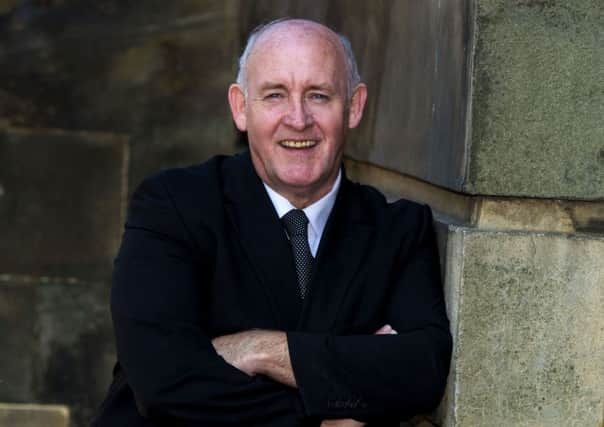ALLIANCE strategy gives us a chance to tackle the harms caused by gambling – Professor Ian Welsh OBE


It’s timely therefore that the Health and Social Care Alliance Scotland (the ALLIANCE) is commencing a significant programme of work to put the voices of people affected by gambling harms at the heart of action to reduce and prevent them with a national partnership programme over the next three years to accelerate the National Strategy to Reduce Gambling Harms, launched last April by the Gambling Commission.
We hear from our members and communities that many of the issues that people face in relation to gambling harms are shared across public health issues relating to mental health, socio-economic inequalities, digital inclusion, gender, power and control.
Advertisement
Hide AdAdvertisement
Hide AdMuch of this harm is often unseen and unspoken but the public health framing and resourcing of the strategy enables these issues to be brought to the attention of government, communities and wider society in order to effect real change.
Stories relating to gambling harm are being raised by our ALLIANCE links workers, who work in GP teams supporting people living in some of the most deprived parts of Glasgow.
They describe how people are increasingly seeking support to help with the potentially devastating effects that gambling harms can have in their lives and communities.
People speak of feelings of shame and hidden issues. It’s time to bring these issues to wider attention. The wider policy and practice landscape in Scotland, including health and social care integration; public health reform; community empowerment; self-management; person-centred care; and Getting it Right for Every Child (GIRFEC) has already helped create a collaborative culture that the emerging Scotland Implementation Group may benefit from.
Whilst there is still a way to go in achieving these ambitions, there is growing acknowledgement that existing professional and statutory- led approaches aren’t working and a more inclusive, cross-sectoral and person-led approach is needed.
The strategy seeks an ‘expert by experience’ approach and the ALLIANCE, the national third sector intermediary in Scotland, is supporting the implementation of planning structures that are emerging. Our programme will play a significant role in mapping the gambling harms landscape.
We’ve learned from previous public health programmes and public sector initiatives, that there is a major opportunity cost in taking a professional/statutory sector-only perspective. The third sector is, and must be, an equal, strategic partner in Scotland.
Therefore, it was heartening to hear Tim Miller, executive director at the Gambling Commission, acknowledge the importance of a full collaborative approach, saying: “The ALLIANCE has proven expertise in engaging people of lived experience in policy and practice development across Scotland’s health and social care sector so I am delighted they will be leading this work.”
Advertisement
Hide AdAdvertisement
Hide AdThe Gambling Harms programme, funded through regulatory settlement funds which are approved by the Commission, will put the voice of lived experience at the heart of the process. In addition, the ALLIANCE will work with the Scottish Public Health Network to develop and implement a whole system approach to prevention and the reduction of gambling harms in Glasgow City, in public health partnership with the Glasgow Public Health Oversight Board.
News of the funding comes after the Commission’s chief executive, Neil McArthur, laid down three challenges to the industry last October to raise standards and reduce harm.
Led by three industry working groups, leaders from across the industry are focusing on ethical game design, the use of advertising technology, and incentives for high value customers.
As a first step, the ALLIANCE will enable people with lived experience to influence and inform these three working groups by running workshops in Glasgow and helping to facilitate further sessions in London during March.
As plans for a Scotland Implementation Group gather pace, it is vital that partners not only propose a direction of travel but step up and collaboratively deliver the actions proposed.
We believe that the person-centred approach is timely. There is scope for strong engagement with Scottish, UK and international colleagues in reducing the harms that gambling can cause to individuals, families and society. This programme ensures that people with lived experience will be at the heart of co-producing the implementation of reducing gambling harms in Scotland and will actively strengthen collaborative efforts with people, communities and cross sector organisations across the UK.
Professor Ian Welsh OBE, chief executive, the ALLIANCE.